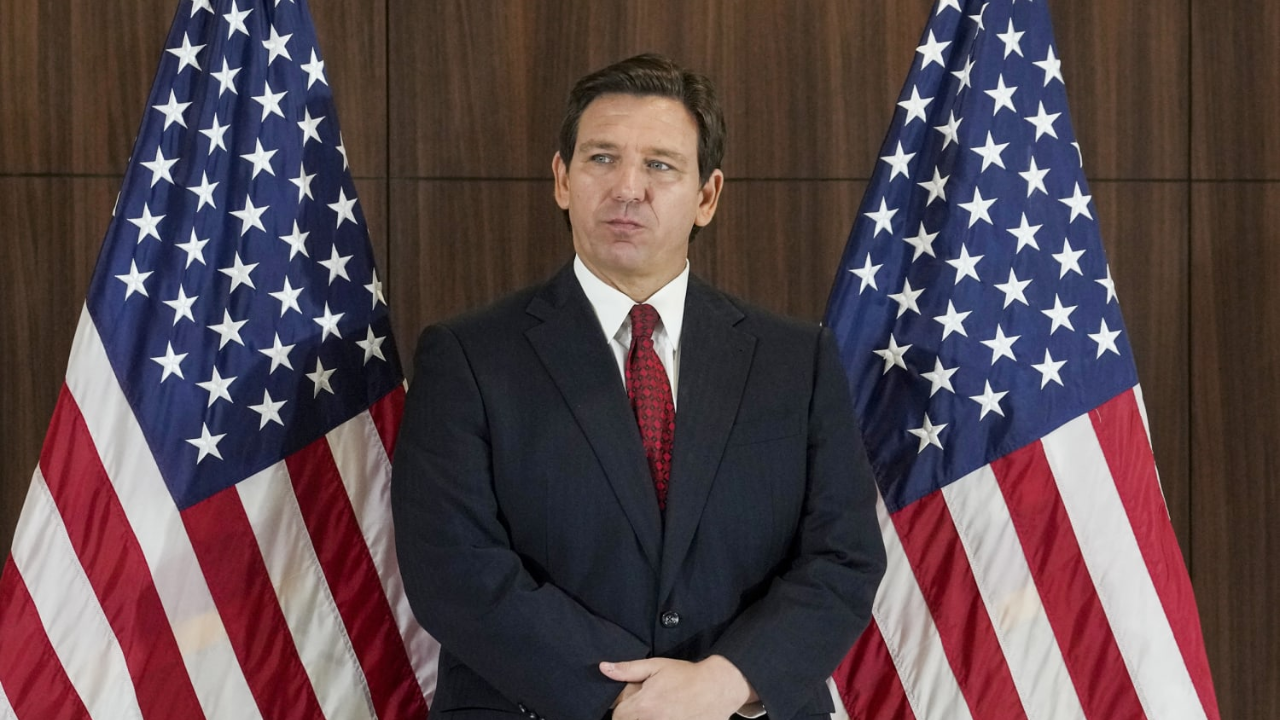Race Day Live Florida Governor Ron DeSantis has toned down his aggressive stance on the immigration bill after facing pushback from state lawmakers.
His initial reaction was strong—he criticized the Republican-led Florida Legislature for rejecting his immigration proposals and even threatened to veto the new bill. But now, he seems more open to compromise.
The bill called the Tackling and Reforming Unlawful Migration Policy (TRUMP) Act, includes some of DeSantis’ ideas, like removing tuition waivers for undocumented students.
However, it also makes Florida Agriculture Commissioner Wilton Simpson the state’s chief immigration officer instead of someone from DeSantis’ team.
This change did not sit well with the governor, who compared it to putting a “fox in charge of the henhouse,” suggesting that farmers rely on cheap labor from undocumented workers.
DeSantis initially responded with harsh criticism. He warned he would veto the TRUMP Act and even hinted at backing challengers against lawmakers who supported it.
But just a few days later, he softened his stance. Speaking at a press conference, he assured that they would “land the plane” and come to an agreement. He also praised the Legislature for working with him over the years.
Political analysts believe this shift is not just about the bill itself but also about DeSantis’ political future.
He is nearing the end of his time as governor—Florida’s constitution prevents him from running for a third term.
Meanwhile, Donald Trump, whom many Florida lawmakers still strongly support, is also barred from running for a third term as president.
This means DeSantis could position himself for a 2028 presidential run without having to go up against Trump directly.
Winning over Trump’s loyal supporters will be crucial for DeSantis if he wants to make another attempt at the presidency.
His 2024 campaign ended early after a disappointing result in the Iowa caucuses. If he hopes to try again in 2028, he needs to maintain strong relationships within the Republican party instead of getting into battles with Trump-aligned lawmakers in Florida.
Michael Binder, a political science professor at the University of North Florida, explained that DeSantis will want to highlight his ability to govern successfully rather than focus on infighting with his party.
He pointed out that rejecting DeSantis’ immigration proposals was one of the biggest challenges the governor has faced from his party. Until now, DeSantis had largely been able to push his agenda without much resistance.
Binder compared the situation to a schoolyard, saying, “It’s like all the kids finally standing up to the bully.”
Sean Freeder, another political science professor, believes that DeSantis likely realized he would lose this fight. Many Republican legislators who previously backed him are now more aligned with Trump.
These lawmakers have supported giving the governor control over other issues in the past, but now they seem less willing to give him control over immigration policies and funds.
“This isn’t really about policy—it’s about power,” Freeder explained. “The Legislature doesn’t want to tie itself to DeSantis anymore because his political star isn’t shining as brightly as before.”
Read More:
- Heartwarming Mission: Volunteers Count the Homeless as a Son Returns from Captivity
- Mountain West Scrambles to Help Refugees After Funding Cuts!
In 2024, DeSantis was seen as a possible alternative to Trump. But as the primary race unfolded, he couldn’t gain enough support to challenge Trump’s influence.
Even in 2028, when Trump won’t be running, his presence in the Republican party will still be strong. This means DeSantis must find a way to position himself as the natural successor to Trump while keeping his political allies in Florida on his side.
Binder believes DeSantis knows he must play smart. “He’s not stupid,” Binder said. “A Republican supermajority could override his vetoes, and that would look much worse than working out a deal.
If he wants to be in the conversation in 2028, he needs to show successful governing, not constant fighting.”
During his press conference, DeSantis downplayed the tensions, saying the disagreement was temporary.
He assured Floridians that lawmakers were doing what they had promised voters and that they would soon move forward on other important issues.
When asked for further comments, DeSantis’ press secretary, Jeremy Redfern, simply said, “The governor’s comment speaks for itself.”
Meanwhile, Florida House Speaker Daniel Perez suggested that DeSantis might be pushing back against the bill simply to stay politically relevant.
“Our bill is stronger than his,” Perez said in an interview. “And that’s unfortunate because I see him as a partner.”
As DeSantis nears the final years of his governorship, his political calculations are becoming clearer.
While he started with an aggressive stance, he is now taking a more strategic approach, likely keeping 2028 in mind. Whether this new stance will help him in the long run remains to be seen.
Disclaimer- Our team has thoroughly fact-checked this article to ensure its accuracy and maintain its credibility. We are committed to providing honest and reliable content for our readers.

